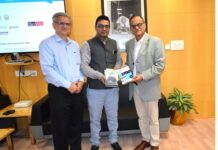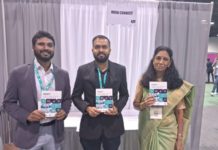New Delhi: The George Institute for Global Health India celebrated its 10th Anniversary on 15th December at an event, attended by a large range of stakeholders in healthcare research, policy, communication and delivery.
A highlight of the event was an Oration delivered by Prof. K. Srinath Reddy, President of the Public Health Foundation of India. Giving a sweeping overview of the evolution cardiovascular and public health research in India over 50 years, and using examples from the work of several researchers, he highlighted the progress made, described the scope of current and upcoming challenges, and reflected on possible solutions. He felt that fiscal measures, policy decisions, multi-sectoral approach and reshaping the social and environmental determinants to health were going to be critical for healthcare delivery in the future. Transdisciplinary research should provide meaningful information to policymakers, which can in turn influence policy.
He highlighted the importance of taking a life-course approach in addressing the problem of chronic diseases. He said “We ought to be able to demonstrate even in a low resource setting on how technology-enabled frontline health workers can be competent and effective in detecting the common diseases and risk-factors like blood pressure and diabetes” and went on to add “the role of a health professional is to elucidate as a researcher, educate as a teacher, alleviate as a clinician, advocate ass an activist and agitate as a concerned citizen. We all play one of these roles. If we can collectively discharge all these functions, we think we can minimize death and disability due to various diseases in India.”
Established ten years ago in 2007, The George Institute for Global Health has been working to generate high-quality evidence and improve the health of millions of Indians by reducing premature deaths and disability from non-communicable diseases like cardiovascular disease, diabetes, kidney disease, stroke, mental health, and injuries.

































































